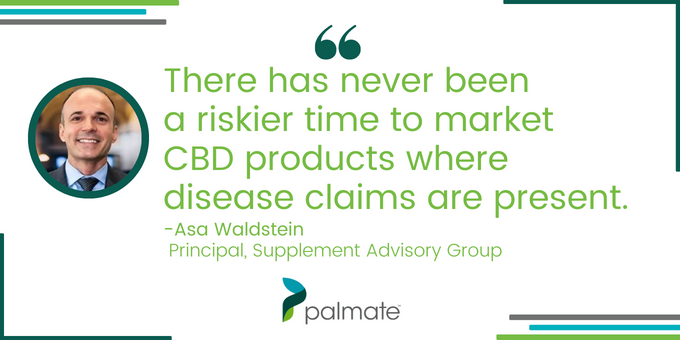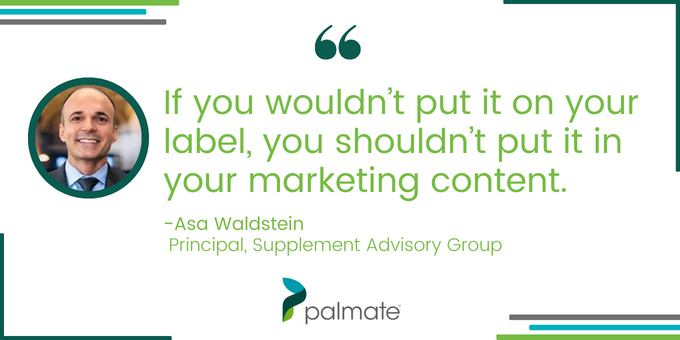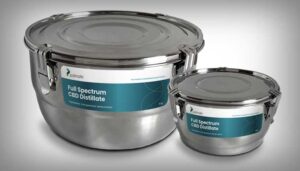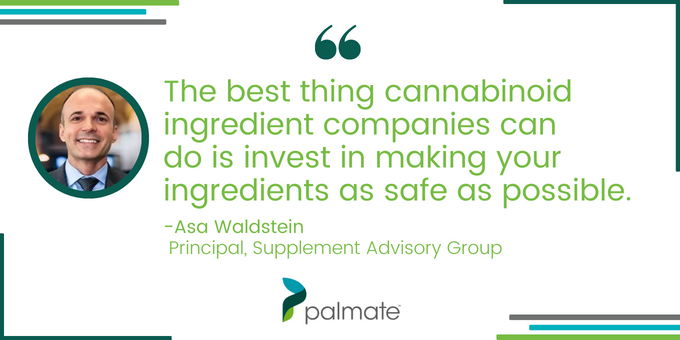
Why CBD Companies Should Re-Examine Their Marketing Content—NOW
Is your CBD-related marketing content free of what the FDA considers a “disease claim”? Even if you think your content is fine, you may want to take another look—especially in light of recent FDA enforcement trends.
According to hemp and dietary supplement expert Asa Waldstein, “The FDA is clearly shifting its focus to hemp-derived cannabinoid products.”
Waldstein points out that FDA warning letters related to CBD products have gone up by over 400% (as of November 2022). More specifically, most of these letters have been prompted by companies making product disease claims in their marketing content.
Learn below why it’s now more important than ever to keep your CBD content free of disease claims. Plus, get tips to help your content stay FDA-compliant.
What’s a product disease claim, and why the 400% increase in FDA warning letters?
As the FDA explains, “A statement is a disease claim if it mentions a specific disease or class of diseases” (e.g., cancer, arthritis, and anxiety) or “if it implies that it has an effect on a specific disease or class of diseases by using descriptions of the disease state.”
The FDA issues warning letters on a weekly basis to companies that have “significantly violated FDA regulations.” These letters, which are publicly available online, do more than just alert specific companies of wrongdoing, says Waldstein. They also help indicate enforcement trends.
“FDA likes to make examples of companies not following the rules in areas they want to focus on,” Waldstein writes.

Companies involved in the cannabinoid industry should take note. Considering the FDA’s recent surge in CBD-related warning letters for disease claims, Waldstein says, “There has never been a riskier time to market CBD products where disease claims are present.”
So what can companies do?
Analyze past content for potential disease claims
Waldstein says companies should seize the opportunity to examine their own content and make sure it’s free of inadvertent disease claims. One helpful rule of thumb is to think of all your content as an extension of your labeling.

Also, even if you have a thorough internal review process in place now for your content, you have to consider everything potentially available to a consumer—including online material that may go back several years.
“Most warning letters are triggered by online content,” Waldstein says. “And just because it’s ‘old’ to you means nothing to the FDA. To them, if it’s publicly accessible, it’s ‘current.’”
He also clarifies that analyzing your marketing content should encompass the full breadth of your online messaging and activity, including:
- Blog posts
- Website pages
- Social media, including hashtags, infographics, likes of other posts, and reposts of clinical studies
- YouTube videos (including both the audio and any textual overlays)
(Note: For a better understanding of what constitutes a disease claim, Waldstein offers a number of resources, including this brief video.)
“Act like you want to be regulated”
As individual states adopt their own allowances for selling CBD-related products, the FDA, in Waldstein’s opinion, has adopted an unofficial enforcement discretion policy.
The agency is generally hands off, he says, if a given company:
- Does not make disease claims (see above)
- Follows Current Good Manufacturing Practices
- Labels products accurately (and includes contact information for adverse event reporting)
More generally, Waldstein suggests a guiding principle for any cannabinoid brand or company: “I do a lot of public speaking to CBD audiences, and I always say, ‘Act like you want to be regulated.’”

How cannabinoid ingredient companies can step up
We’ve considered the cannabinoid industry in general with the points above. But what about cannabinoid ingredient companies, specifically, such as Palmate?
Waldstein notes that raw material companies may be less likely to have their marketing content scrutinized by the FDA. But he says it’s still important to do the right thing by making sure content doesn’t contain disease claims.
Palmate has a multi-step review process to help ensure our content does not contain possible disease claims.

The certifications Palmate has earned (some of which aren’t even technically required) reflect our commitment to the highest standards for safe ingredients.
Cannabinoids hold tremendous promise. We should all make it our highest priority to work within the current legal framework, keep our content free of disease claims, and focus on producing safe, high-quality ingredients and finished products.
Wondering how Palmate can provide cannabinoid ingredients that unleash the full potential of your products?
Related Posts
Recent Posts
- 7 Questions to Help You Find a Trustworthy CBD Ingredient Company
- Why CBD Companies Should Re-Examine Their Marketing Content—NOW
- Qualifying an Ingredient Supplier for Your CBD-Infused Beverage Products: 5 Crucial Questions to Ask
- The Logical Leap: 5 Reasons Why You Should Integrate CBD into Your Business
- GFSI-Recognized Certification: How Cannabinoid Ingredient Suppliers Can Help Manufacturers Succeed
Categories
- Best Practices (4)
- CBD and Business (3)
- Certifications (1)



